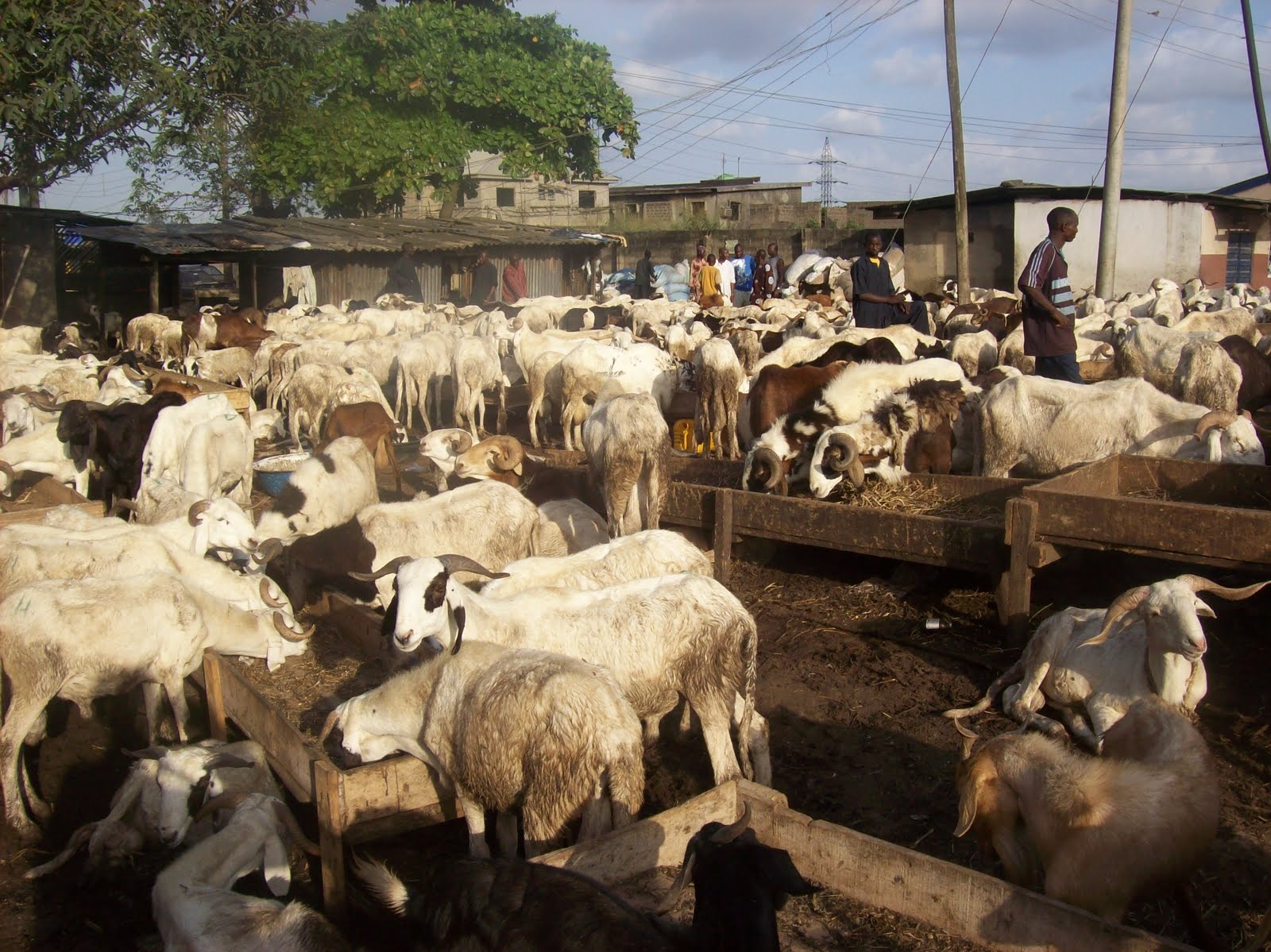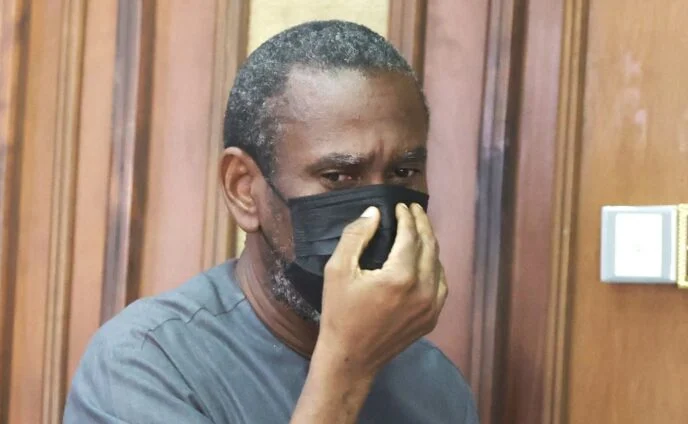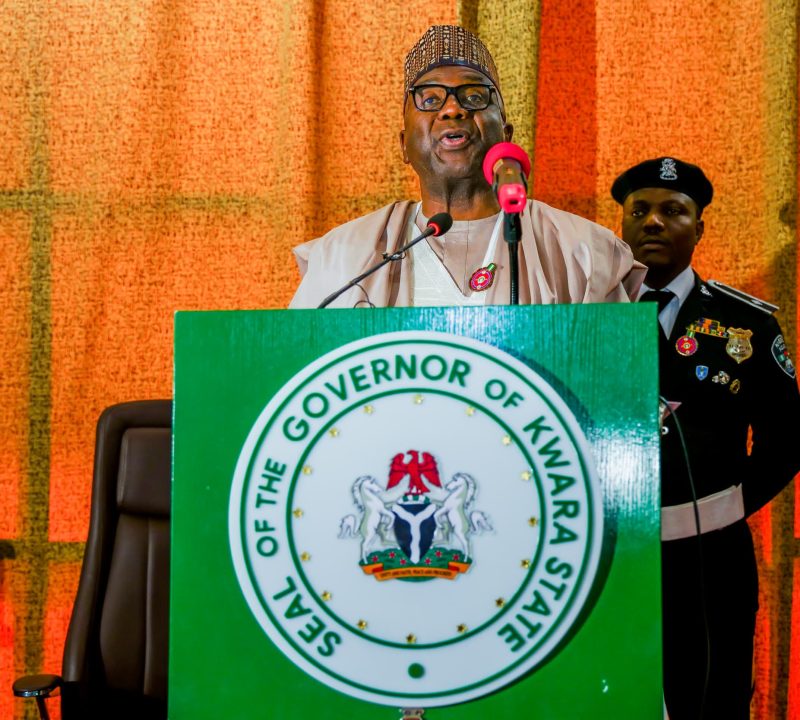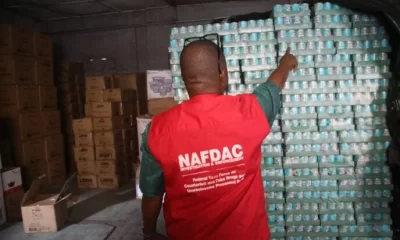Business
Sallah: Ram costs jump to N750,000, sellers lament poor sales in Badagry

Amidst the upcoming Eid-El-Kabir festival, ram sellers in Badagry, Lagos State, are grappling with sluggish sales as costs increase to as much as N750,000 for a large ram.
This is according to a report by the News Agency of Nigeria, showing the current realities of the bellowing economic hardship in the country.
In places such as Alaba, Ajibade, and Agbalata ram markets there are significant variations in the cost of rams, leaving both sellers and buyers frustrated.
In the Alaba ram market, a large ram sells for a hefty price of N750,000, while medium-sized rams range between N350,000 and N400,000.
Smaller rams are priced from N150,000 to N200,000. The situation is slightly different in the Agbalata market, where big rams are sold for N400,000 to N450,000, medium-sized rams for N250,000 to N300,000, and smaller ones for N120,000 to N150,000.
Reports show that in Ajibade ram market in Aradagun, another seller, Belawu Ajadi highlighted the compounded costs of feeding and transporting the rams as factors contributing to high prices.
“Customer turnout is low compared to last year. By this time in 2023, I had sold over 50 rams; this year, I’ve sold just ten,” Ajadi said. Despite the economic downturn, he remains hopeful that sales will pick up as the festival approaches.
The buyers, too, are feeling the pinch. Yusuf Ajadi, shopping at Alaba market, recounted how prices have more than doubled.
“In 2023, I bought two rams for N280,000. Today, a medium-sized ram costs me N400,000, making it unaffordable to buy two,” he said. Another buyer, Alhaji Taoreed Ajape, expressed shock at the inflated prices. “I came from Ikoga, Badagry, expecting better deals. The ram I bought for N100,000 last year now costs N220,000,” he shared, indicating that he might have to return after securing more funds.
Alhaji Abdul-Salam Hassan, a ram seller at Alaba market, attributed the steep prices to high transportation costs. “I spent N1.5 million transporting my rams from Sokoto State. I need to recoup these costs to make a profit,” he explained. Despite bringing 300 rams to the market since June 5, Hassan has sold fewer than ten. “Many buyers inquire about prices but fail to return,” he lamented.
Hassan also noted that while last year’s prices were considered high, this year’s have skyrocketed due to the removal of fuel subsidies, which has significantly increased transportation costs.
The situation in Badagry reflects broader economic challenges affecting Nigeria. Nigeria currently battles a cost of living crisis with inflation at a 28-year high of 33.69% and food inflation almost at 34%.
Prices of staple food across the country, especially grains, have seen an almost 100% increase since last year because of disruption in global supply chains due to conflicts in the Middle East and Europe.
Business
Court remands businessman Akintoye Akindele over $35m contract fraud

The federal high court in Abuja has remanded Akintoye Akindele, chief executive officer (CEO) of Duport Midstream Company Limited, at the Kuje correctional centre.
On Tuesday, Akindele was arraigned by the Economic and Financial Crimes Commission (EFCC) on a four-count charge bordering on money laundering and contract fraud.
The anti-graft agency accused Akindele of allegedly collecting $35 million from the Nigerian Content Development and Monitoring Board (NCDMB) to build a 2,000 barrel-per-day refinery, jetty, gas plant, data centre, and tank farm at Okpoama community in Brass LGA of Bayelsa state.
The EFCC alleged that Akindele received the funds through the bank account of Atlantic International Refinery and Petrochemical Limited and funneled the monies into four of his companies and bureau de change outlets.
The companies are Platform Capital Investment Partners, Duport Midstream Company Ltd., Puisance Afrique Dynamics Ltd., Adamantine Petrochemical & Refinery Ltd.
“That you, Akindele Akintoye, and Platform Capital Investment Partners Limited, between December 2020 and February 2021, within the jurisdiction of this Honourable Court, indirectly retained the sum of $16,006,000 (Sixteen Million, Six Thousand United States Dollars), being part of the funds dishonestly converted from the money paid by the NCDMB to Atlantic International Refinery and Petrochemical Limited as investment, knowing the said sum constituted proceeds of unlawful activity, thereby committing an offence contrary to Section 15(2)(d) of the Money Laundering (Prohibition) Act, 2011 (as amended by Act No. 1 of 2012) and punishable under Section 15(3) of the same Act,” one of the counts reads.
The defendant pleaded not guilty to all the charges.
After the ‘not guilty’ plea, Ekele Iheanacho, counsel to the EFCC, asked the court to remand Akindele in the custody of the correctional centre and seek a trial date.
However, Emmanuel Esadio, counsel to the defendant, told the court that a bail application has been filed and served on the prosecutor.
In his response, Nwite said it will take a 48-hour period for the bail application to be considered.
Esadio requested that his client be remanded in the custody of the anti-graft agency.
However, Iheanacho opposed the request, arguing that the EFCC lacked adequate facilities.
The EFCC counsel said the defendant had demonstrated untrustworthiness by collecting his international passport and claiming that it is in the court’s custody.
“The defendant cannot be trusted. He has shown tendencies that suggest he may commit another crime,” Iheanacho said.
“Additionally, there is no medical evidence before the court to support claims of ill health.”
The trial judge remanded the defendant at Kuje correctional centre and adjourned the case to December 31, 2024.
Business
Kwara NLC seeks 50% tax reduction for workers

Kwara State Council of the Nigeria Labour Congress has appealed to Governor AbdulRahman AbdulRazaq to grant a 50 per cent downward review of the new tax policy of the state government for workers in the state.
It also appealed to the governor to extend tax holidays for employees in the state public service for another three months as done almost three months ago given the current hardship citizens are grappling with.
The state NLC Chairman, Muritala Olayinka, made the plea in a statement he signed and made available to Journalists in Ilorin on Tuesday.
Olayinka praised AbdulRazaq for prioritising the welfare of workers and pensioners with prompt and regular payment of salaries and allowances, describing it as a clear departure from that of the past administration in the state.
He noted that the governor has brought his leadership quality to bear with the execution of critical infrastructural projects that enhance the standard of living of the citizenry
While praying for good health and wisdom for AbdulRazaq to succeed in office, the NLC chairman reaffirmed the resolve of the organized labour to work with the present administration to achieve more milestones.
“On behalf of the entire membership of the Nigeria Labour Congress (NLC), Kwara State Chapter, I extend our profound gratitude for your exceptional leadership and unwavering commitment to the development of Kwara State and its people.
“Your Excellency’s dedication to workers’ welfare has not gone unnoticed. From the prompt payment of salaries and pensions to the execution of critical infrastructural projects that enhance the quality of life for all Kwarans, your administration has demonstrated an exemplary understanding of the challenges faced by the workforce and the general populace.
“We especially commend your continued efforts in improving healthcare, education, and social amenities, which are vital to ensuring the well-being and productivity of the people. Your inclusive governance and accessibility as a leader have set a standard worth emulating.
“As partners in progress, we reaffirm our support and cooperation in working with your administration to achieve more milestones for our beloved state.
“Once again, we appreciate Your Excellency’s tireless efforts and pray for your continued wisdom, good health and success as you steer Kwara State towards greater heights”, Olayinka said.
Business
NCAA sanctions five airlines over flight cancellations, missing luggage

The Nigeria Civil Aviation Authority (NCAA) has initiated enforcement action against five airlines, comprising two international and three domestic operators, for violating Part 19 of NCAA Regulations of 2023.
NCAA said the violations include failure to refund passengers within the stipulated timeframe, non-responsiveness to authority’s directives, incidents of missing and manhandled luggage, short-landed baggage, and issues relating to flight delays and cancellations.
Michael Achimugu, NCAA’s director of public affairs and consumer protection, confirmed it to TheCable on Tuesday.
Although Achimugu did not reveal the names of the sanctioned airlines, he explained that while airlines are not always at fault for flight disruptions, NCAA regulations mandate specific actions they must take during such instances.
He said failure to adhere to the directives results in varying levels of penalties.
The director noted the surge in passenger complaints about delays and cancellations during the festive season, attributing some disruptions to harmattan-related poor visibility.
“We all know that this is harmattan season, so there is poor visibility. Flights must get cancelled. This is force majeure, and the airlines do not owe passengers anything in those instances. The enforcement we are initiating today is on cases where the airline is deemed to have been at fault. More will come,” Achimugu said.
He added that the NCAA would summon the chief executive officers (CEOs) of all airlines this week for a meeting to address flight disruptions and regulatory breaches.
-

 News1 week ago
News1 week agoNaseni’s Executive Vice Chairman, Khalil Suleiman Halilu, Named 2024 Winner Of Daily Global Newspaper Conference Series Award For Science, Technology, Innovation, And Infrastructure
-

 News14 hours ago
News14 hours agoNAFDAC seizes unregistered food products worth N3.8bn at warehouse in Lagos
-

 Relationships1 week ago
Relationships1 week ago‘I wish I met you before the wrong person’ – says Portable’s baby mama, Honey Berry, as she flaunts new lover
-

 Business7 days ago
Business7 days agoPoS operators increase withdrawal charges, blame electronic levy, cash scarcity
-

 News1 week ago
News1 week agoLagos state government shuts Lord’s Chosen Church, businesses across Lekki, VI, others over noise, environmental infractions
-

 Entertainment1 week ago
Entertainment1 week agoBovi speaks against beating children, reveals why his family relocated to UK
-

 Entertainment7 days ago
Entertainment7 days agoRaheem Sterling’s ex-girlfriend, Tabby Brown dies after BBL surgery
-

 Entertainment1 week ago
Entertainment1 week agoPastor Enenche’s daughter, Deborah, husband welcome baby boy two years after marriage

















